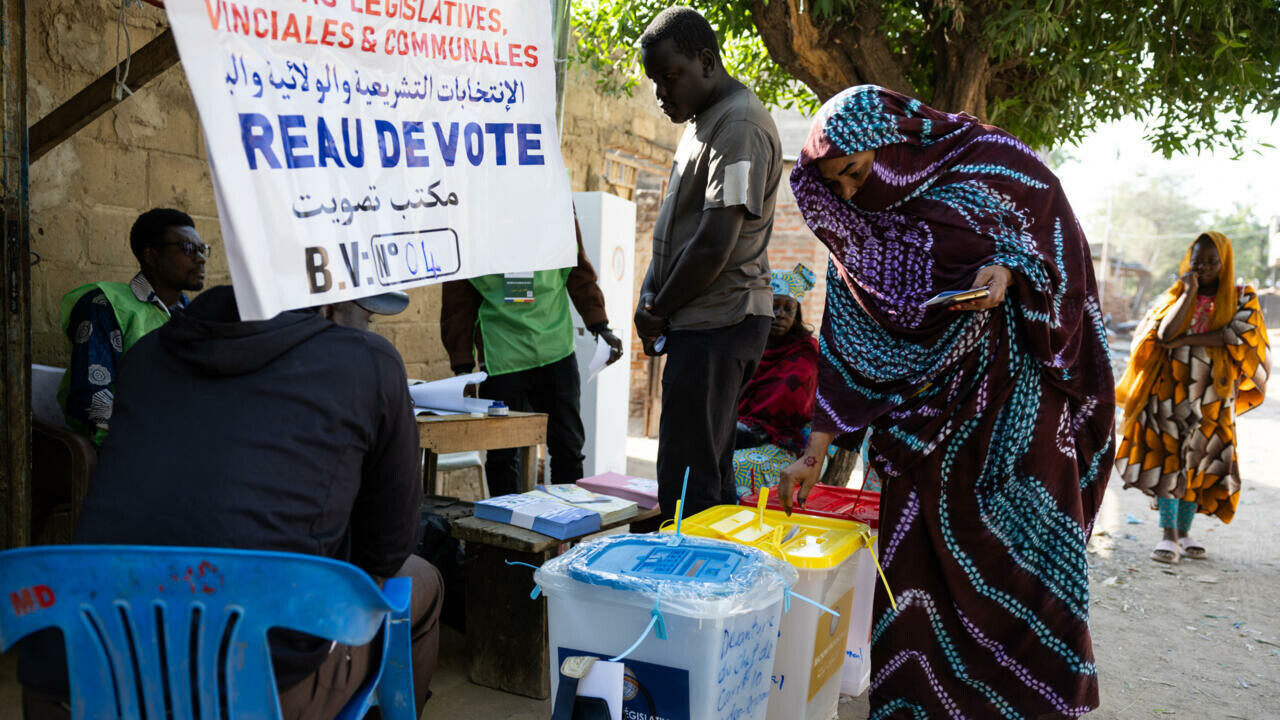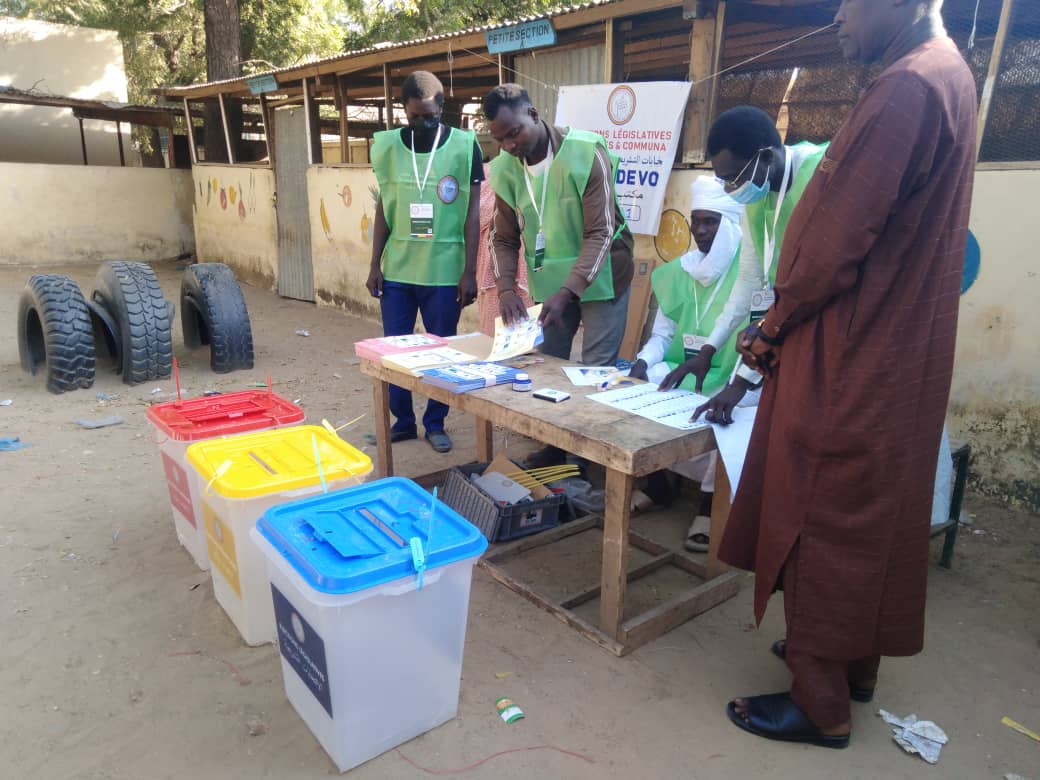Sun 29 December 2024:
Voting in Chad’s general elections began on Sunday, with people voting to elect representatives to federal, provincial, and local governments, amid a boycott by the main opposition Les Transformateurs, which claims the results have already been decided beforehand.
The vote is taking place amid significant geopolitical tensions, including the gradual withdrawal of French forces following the termination of a military cooperation agreement, recurring Boko Haram terror group attacks in Lake Chad, and allegations of interference in the neighboring Sudanese armed conflict.
According to the National Agency for the Management of Elections (ANGE), more than 8 million voters are registered, out of a total population of approximately 18.28 million.
Polling stations are open from 6 a.m. to 6 p.m. local time, with vote counting to follow. Results from the legislative, provincial, and municipal elections are expected in mid-January.
Chad, a predominantly desert Sahelian country, has been led by Marshal Mahamat Idriss Deby Itno, 40, since 2021, when his father, Idriss Deby Itno, died. He won a five-year term in a contentious May 2024 election that the opposition labeled fraudulent.
Following the constitutional referendum in December 2023 and the presidential election the same year in May, these polls mark the end of a transition that has lasted more than three years.
Issa Doubragne, spokesperson for the ruling Patriotic Movement for Salvation (MPS), said in a statement posted on the party’s official website: “We are fighting tooth and nail to get the majority. We elected Marshal Mahamat Idriss Deby Itno with 61% of the vote, and we must provide him with the resources he requires to carry out his plan.”
The main opposition party, Les Transformateurs, led by Succes Masra, an economist and politician who was prime minister from January 1 to May 22, 2024, is boycotting the elections.
“The results are already in the computers, and everything has been decided beforehand. We refuse to serve as extras and urge Chadians not to vote,” Masra stated in a Facebook post.
The new parliamentary system will be made up of a National Assembly with 188 deputies elected for five-year terms and a Senate with 69 members, one-third of whom are appointed by the President.
The National Transitional Council implemented this bicameral structure on July 29, 2024, in response to the Inclusive National Dialogue’s recommendations.
The diaspora, as well as more than 45,000 soldiers and 200,000 nomads from across the country, will vote in these elections.
__________________________________________________________________________

https://whatsapp.com/channel/0029VaAtNxX8fewmiFmN7N22
__________________________________________________________________________
Chad, a landlocked country in Central Africa, faces several pressing issues impacting its development and stability.
- Political Instability: Chad has a history of authoritarian rule, military coups, and weak governance. The 2021 death of long-time President Idriss Déby Itno and the subsequent transitional military government have sparked protests and political unrest.
- Economic Challenges: Despite oil reserves, Chad’s economy is underdeveloped and heavily reliant on agriculture. High poverty rates, unemployment, and limited infrastructure hinder economic progress. The country also struggles with external debt and dependency on foreign aid.
- Security Concerns: Chad faces threats from extremist groups such as Boko Haram and instability in neighboring countries, leading to cross-border conflicts and displacement of populations. Its participation in regional counter-terrorism efforts stretches its military resources.
- Humanitarian Crisis: Chad hosts hundreds of thousands of refugees from neighboring conflicts while dealing with internal displacement due to violence. Food insecurity, malnutrition, and inadequate healthcare further exacerbate the humanitarian situation.
- Climate Change and Environmental Degradation: Desertification, droughts, and shrinking water resources, including Lake Chad, threaten livelihoods, particularly in agriculture and pastoralism, which are vital for the majority of the population.
Addressing these challenges requires coordinated efforts involving political reform, economic diversification, security enhancements, and international cooperation.
-Source: AA
__________________________________________________________________________
FOLLOW INDEPENDENT PRESS:
WhatsApp CHANNEL
https://whatsapp.com/channel/0029VaAtNxX8fewmiFmN7N22
![]()
TWITTER (CLICK HERE)
https://twitter.com/IpIndependent
FACEBOOK (CLICK HERE)
https://web.facebook.com/ipindependent
YOUTUBE (CLICK HERE)
https://www.youtube.com/@ipindependent
Think your friends would be interested? Share this story!







